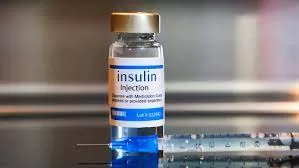A groundbreaking study published in The FEBS Journal has shed light on the role of neuroestrogens—estrogens synthesized in the brain—in regulating appetite. Researchers found that these neuroestrogens help suppress food intake and could be a significant factor in maintaining body weight.
While estrogen is primarily produced in the ovaries, it is also synthesized in various tissues throughout the body, including neurons in the brain. To understand the impact of neuroestrogens on appetite, scientists investigated the enzyme aromatase, which is essential for estrogen production.
The research team genetically modified mice by depleting or knocking out the gene encoding aromatase, preventing them from synthesizing estrogens systemically. The results were striking—mice lacking aromatase exhibited increased food intake and weight gain compared to their counterparts with normal aromatase expression.
Further experiments demonstrated that restoring aromatase production in the brain reduced food consumption and heightened sensitivity to leptin, a hormone responsible for signaling fullness. These findings confirm that neuroestrogens play a role in appetite regulation independent of ovarian estrogen.
To isolate the effects of neuroestrogens from ovarian estrogen, researchers removed the ovaries in female mice. They observed that the hypothalamus—a key brain region involved in hunger and satiety—responded by increasing aromatase production, leading to a decrease in food intake.
“Our results imply that neuroestrogens likely contribute to appetite regulation and may be relevant for body weight reduction,” the study authors wrote.
These findings could pave the way for new therapeutic approaches targeting neuroestrogen pathways to help manage obesity and metabolic disorders.
Disclaimer: This article summarizes scientific research and should not be interpreted as medical advice. Further studies in humans are required to determine the clinical implications of these findings. Always consult a healthcare professional before making any changes to diet or treatment plans.












